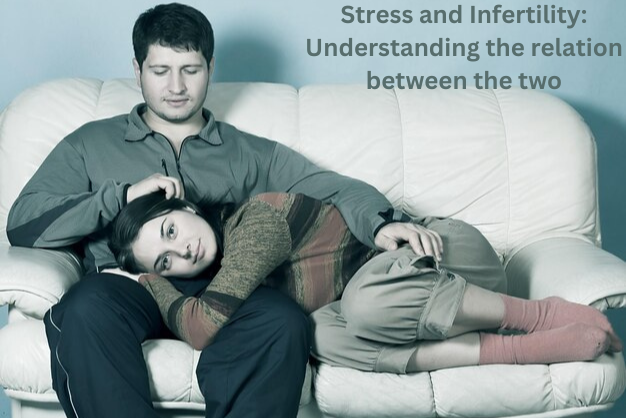Stress and Infertility: Understanding the relation between the two
Infertility is a complex issue that can affect both men and women. While there are many factors that can contribute to infertility, stress is one factor that can significantly impact your fertility journey.
How Stress Impacts Fertility
Stress can disrupt the delicate hormonal balance necessary for conception. When you're stressed, your body releases stress hormones like cortisol, which can interfere with ovulation, sperm production, and implantation.
Here are some of the ways stress can impact fertility:
Altered Hormone Levels: Stress can disrupt the normal hormonal balance, affecting ovulation and sperm production.
Reduced Blood Flow: Chronic stress can lead to reduced blood flow to the reproductive organs, which can hinder fertility.
Weakened Immune System: Stress can weaken your immune system, making you more susceptible to infections that can affect fertility.
Negative Impact on Sexual Function: Stress can lead to decreased libido and sexual dysfunction, which can make it difficult to conceive.
Tips to Manage Stress and Boost Fertility
While stress can significantly impact fertility, there are several effective strategies to manage stress and improve your chances of conception:
1. Practice Relaxation Techniques:
Meditation: Regular meditation can help calm your mind and reduce stress hormones.
Yoga: Yoga combines physical postures, breathing exercises, and meditation to promote relaxation and reduce stress.
Deep Breathing: Deep breathing exercises can help lower stress levels and improve overall well-being.
2. Prioritize Sleep:
- Aim for 7-8 hours of quality sleep each night.
- Create a peaceful sleep environment by minimizing distractions and keeping your bedroom cool, dark, and quiet.
3. Engage in Physical Activity:
- Regular exercise can help reduce stress and improve overall health.
- Aim for at least 30 minutes of moderate-intensity exercise most days of the week.
4. Connect with Others:
- Spend time with loved ones and engage in social activities.
- Join a support group or online community to connect with others who are going through similar experiences.
5. Seek Professional Help:
- If stress is significantly impacting your fertility journey, consider seeking professional help from a therapist or counselor.
- A therapist can provide you with coping strategies and emotional support.
New World Fertility Centre: Your Partner in Fertility
At New World Fertility Centre in Delhi, we understand the emotional toll that infertility can take. Our experienced fertility specialists can provide comprehensive fertility evaluations, personalized treatment plans, and emotional support to help you on your journey to parenthood.
Our Services:
Comprehensive Fertility Evaluations: We conduct thorough assessments to identify the underlying causes of infertility.
Advanced Fertility Treatments: We offer a range of advanced fertility treatments, including IVF, ICSI, and other assisted reproductive technologies.
Emotional Support: Our compassionate team provides emotional support and counseling to help you navigate the challenges of infertility.
Conclusion
While the link between stress and infertility can seem overwhelming, it’s important to remember that help is available. Managing stress and seeking professional support can improve both your mental health and your chances of conception.
At New World Fertility Centre, we are committed to guiding you through this journey with expert care and understanding. Take the first step towards parenthood—schedule a consultation with us today.
Frequently Asked Questions(FAQs)
1. Can stress alone cause infertility?
While stress alone is unlikely to cause infertility, it can impact reproductive health by disrupting hormonal balance, ovulation, and sperm quality. Managing stress can improve overall fertility outcomes.
2. How does stress affect ovulation?
Stress triggers the release of hormones like cortisol, which can interfere with the production of gonadotropin-releasing hormone (GnRH). This disruption may lead to irregular periods or anovulation, making conception more difficult.
3. Can stress affect male fertility?
Yes, stress can negatively impact male fertility by reducing sperm count, motility, and morphology. It can also lower testosterone levels, affecting overall reproductive health.
4. Can infertility cause stress?
Yes, infertility can be a significant source of emotional distress, leading to anxiety, depression, and feelings of inadequacy. The financial, physical, and emotional challenges of infertility treatments can amplify stress levels.
5. Can managing stress improve fertility?
Managing stress may not directly "cure" infertility but can improve your overall physical and emotional well-being, which can positively impact fertility treatment outcomes. Relaxation techniques, therapy, and a healthy lifestyle are key strategies.

 Jul-26-2025
Jul-26-2025